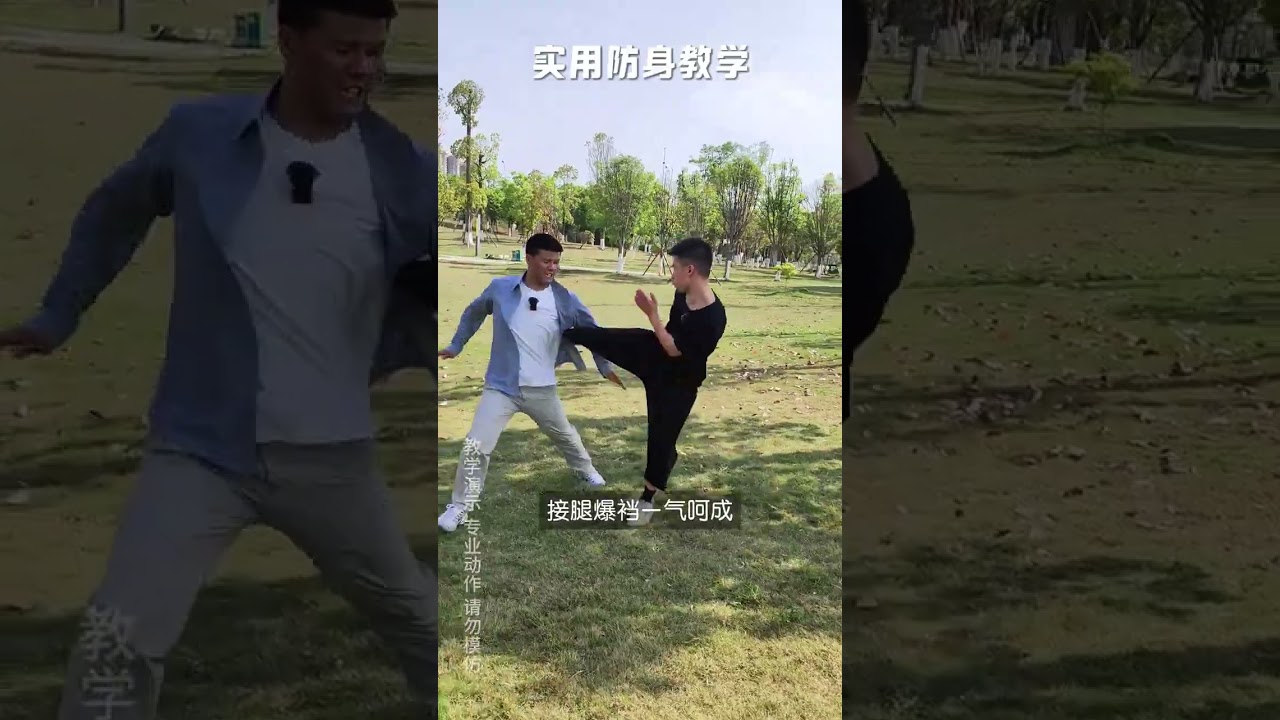Womens Self Defense
Arming Women with Knowledge: The Importance of Legal Defense Courses

In today’s society, self-defense is not merely about physical prowess; it’s also about understanding the law and one’s rights. Legal defense courses have emerged as a vital tool for women to empower themselves, equipping them with both knowledge and skills essential for navigating legal challenges in high-stress situations. Here’s why these courses are critical for women.
Understanding Legal Rights
The Foundation of Self-Defense
Legal self-defense is defined by parameters that vary from state to state. Women must understand what constitutes justifiable self-defense under the law. A legal defense course offers insights into:
- Allowed Actions: What actions can be legally taken when defending oneself.
- Duty to Retreat: Whether one is required to attempt to escape a situation before resorting to physical defense.
- The Importance of Documentation: Knowing how to report incidents correctly and gather evidence.
Navigating Complex Legal Landscapes
Situations involving self-defense can quickly become legal quagmires. Knowing when and how to involve law enforcement can significantly affect the outcome of any legal proceedings. Legal defense courses prepare women to handle these situations with the knowledge necessary to protect themselves and minimize legal repercussions.
Empowerment through Education
Building Confidence
Knowledge breeds confidence. Women who take legal defense courses often report feeling more empowered in their daily lives. Understanding their rights and the law allows them to approach potentially dangerous situations with a sense of agency rather than fear.
Combating Stereotypes
Arming women with legal knowledge helps counteract stereotypes that often view women as victims rather than assertive individuals capable of self-advocacy. By fostering a community that prioritizes education, we encourage the perception of women as empowered individuals who are equipped to handle their safety.
Holistic Self-Defense
Mind, Body, and Law
True self-defense encompasses physical skills, mental preparation, and legal knowledge. Courses can integrate self-defense techniques with legal education, ensuring that participants leave not only with the ability to protect themselves physically but also with an understanding of the consequences their choices may have on a legal level.
Scenario-Based Learning
Many legal defense courses incorporate scenario-based learning, where participants confront carefully crafted situations to practice both self-defense and legal decision-making. This hands-on approach helps women think critically about their responses in real-life circumstances.
Building Community
Support and Solidarity
Women’s legal defense courses often foster a sense of community, allowing participants to share experiences and support one another. This camaraderie can be an invaluable aspect of the learning process, creating networks of women who stand in solidarity.
Encouraging Advocacy
Women who are armed with legal knowledge are more likely to advocate for themselves and others. They can become voices for change, urging legal reforms that protect women and promote safety in communities. Educated women can also mentor others, multiplying the impact of their knowledge.
Conclusion
Arming women with legal knowledge through defense courses is essential for fostering empowerment, confidence, and self-advocacy. By understanding their rights and the legal implications of their choices, women can navigate potentially dangerous situations more effectively. These courses not only prepare women to defend themselves physically but also equip them with the tools to protect their rights in a complex legal landscape. In a world where knowledge truly is power, legal defense courses represent a crucial step toward a safer, more equitable society.
Womens Self Defense
Uniting for Justice: Community Organizations Push for Stronger Self-Defense Legislation

Uniting for Justice: Community Organizations Push for Stronger Self-Defense Legislation
In recent years, the dialogue surrounding self-defense laws has grown more complex and critical, highlighting the need for a re-examination of legal frameworks that govern individual conduct during life-threatening encounters. As issues of personal safety, inequality, and the right to self-defense collide, community organizations across the nation are uniting to advocate for stronger self-defense legislation that not only protects individuals but also addresses systemic injustices.
The Current Landscape
Self-defense laws vary widely from state to state, resulting in a patchwork of regulations that can often leave marginalized communities under-protected. Some states have “Stand Your Ground” laws which give individuals the right to use force without the duty to retreat when threatened. Meanwhile, others adhere to more traditional “Duty to Retreat” principles, requiring individuals to avoid confrontation when possible. This inconsistency can lead to unintended consequences, particularly for people of color and those from lower socioeconomic backgrounds, who might be disproportionately criminalized in self-defense situations.
The Call for Reform
In response to these disparities, community organizations are rallying for legislative change. Groups focused on social justice, civil rights, and public safety are coming together to craft proposals aimed at reforming self-defense laws. These advocates argue that it is essential not only to ensure the right to defend oneself but also to create an equitable legal framework that reduces bias in how self-defense cases are prosecuted and adjudicated.
Key Proposals
-
Enhanced Training and Awareness: One significant proposal advocates for mandatory training in self-defense laws for both civilians and law enforcement. Understanding the legal implications of self-defense can empower individuals to make informed decisions during high-pressure situations.
-
Bias Review Measures: Community organizations are pushing for legislative measures that require law enforcement to undergo training on implicit bias and the historical context of self-defense laws. This could mitigate the risk of racial profiling and ensure that self-defense claims are evaluated fairly.
-
Legal Support and Resources: Providing legal resources and support for individuals who defend themselves can help level the playing field. Advocates suggest establishing funds or programs that can assist with legal fees for those who may not otherwise afford representation in self-defense cases.
- Community Dialogues: Engaging community members in discussions about self-defense can foster better understanding and cooperation. Organizing community forums to discuss individual rights, responsibilities, and personal safety can build trust and provide critical information.
Building Coalitions
Collaboration is at the heart of this movement. Organizations with differing focuses—such as gun rights advocates, domestic violence shelters, youth mentorship groups, and racial justice organizations—are finding common ground in the belief that self-defense is a fundamental right that must be accessible to everyone.
These coalitions are also crucial in countering misinformation about self-defense laws and their implications. By working together, they can foster a more informed public debate and promote legislation that is both just and effective.
The Path Forward
As these community organizations continue to push for stronger self-defense legislation, the conversation around justice, equity, and individual safety remains crucial. Advocates emphasize that any reform must be carefully crafted to protect the rights of all individuals while also addressing the underlying societal issues related to violence and safety.
In conclusion, the united effort of community organizations in advocating for stronger self-defense legislation reflects a growing commitment to justice that transcends traditional divides. By prioritizing equity and informed discourse, these groups are not only advocating for change in the law but are also championing the dignity and safety of every individual in society. The path to reform may be arduous, but the collective action of committed organizations can drive meaningful change in ensuring that self-defense rights are upheld for all.
Womens Self Defense
Self Defense Training For Women In A Bar Scene Or Walking The Mall — Lady Of America

http://www.ladyofamerica.com This is the last of the Lady of America Fitness for Women self defense training videos. This video is …
source
Womens Self Defense
One Punch Man #Selfdefense #Womens selfdefense #Defeat the enemy with one move #Selfdefens
-

 Womens Self Defense11 months ago
Womens Self Defense11 months agoNew Legislation Empowers Women to Defend Themselves
-

 Self Defense News1 year ago
Self Defense News1 year agoShe was convicted of killing her abusive boyfriend. Now a Maple Grove woman is home awaiting a new trial.
-

 Self Defense News1 year ago
Self Defense News1 year agoSelf-Defense for All: The new Gracie Jiu-Jitsu Pasadena is for everyone | Online Features
-

 Womens Self Defense1 year ago
Womens Self Defense1 year agoTop 5 Self-Defense Techniques Every Woman Should Know
-

 Womens Self Defense7 months ago
Womens Self Defense7 months agoUnderstanding State-by-State Variation in Self Defense Laws
-

 Womens Fitness1 year ago
Womens Fitness1 year agoXtreme Bodyweight HIIT (Lots of Jumping!) | Joanna Soh (Fio Series)
-

 Womens Preparedness1 year ago
Womens Preparedness1 year ago10 essential skills for surviving in the great outdoors
-

 Womens Preparedness1 year ago
Womens Preparedness1 year agoEmpower Yourself: A Guide to Female Survival Planning




